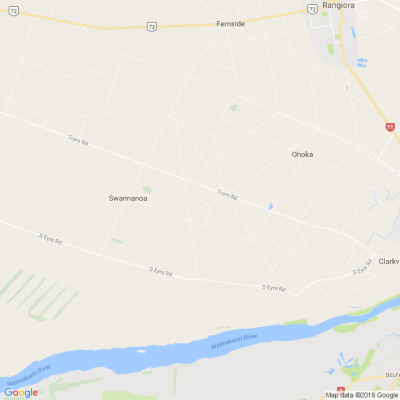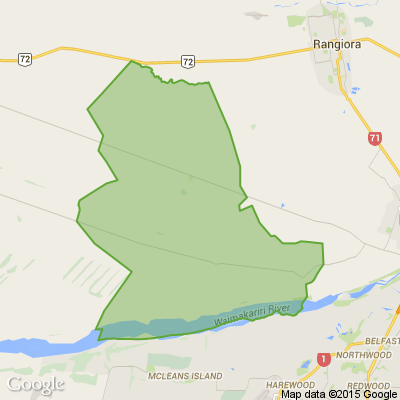Council questions ‘impossible’ drinking water standards
By David Hill, Local Democracy Reporter
Chlorine exemption applications have been withdrawn by the Waimakariri District Council due to ‘‘impossible’’ drinking water standards.
Mayor Dan Gordon said he has raised concerns with Local Government Minister Simeon Brown about the Water Services Act’s drinking water standards, which are imposed by national regulator Taumata Arowai.
‘‘In my conversation with the new minister I raised that it is almost impossible to achieve an exemption under the new standards, so maybe it is something that needs to reviewed,’’ he said at a council meeting on Wednesday.
The council voted to withdraw its applications for chlorine exemptions for the Rangiora, Kaiapoi, Oxford urban and Waikuku Beach drinking water supplies for now, and to write to Brown asking him to reconsider the standards.
An application for the Cust water supply was declined last year, while the Woodend-Pegasus exemption application is still being considered.
Three Waters manager Kalley Simpson said the council would have a better idea of what was needed to achieve chlorine exemptions once it had received feedback from the Woodend-Pegasus application.
‘‘We believe our applications in their current form would be declined, based on the Cust decision, so we need to withdraw and look to resubmit when we have done the necessary work.’’
He said initial estimates suggested it would cost up to $100 million to bring the six urban supplies up to an acceptable standard to receive a chlorine exemption.
The Rakaia Huts drinking water supply in the Selwyn district has received a chlorine exemption for five years, with conditions, Simpson said.
The council opted to chlorinate all of its drinking water supplies last year, after the Cust application was declined.
But Gordon said the council had not given up.
The Waimakariri district was one of the last to chlorinate its water supplies and the had long believed it had ‘‘gold standard’’ drinking water, which was fed to deep underground aquifers, Gordon said.
‘‘We have pushed back as strongly as we could and it is clear we are going to have to do more work to comply, but we are not giving up.’’
‘‘I don’t like the position we are in, but we are obligated to follow the law.
‘‘In order to achieve exemptions, the bar is incredibly high, so we need the new Government to consider whether that is acceptable.’’
Health experts recommend chlorine to kill harmful natural organisms that can grow in water, such as bacteria, viruses and parasites, and to make it safe to drink.
World Health Organisation studies show the small amount of chlorine needed to treat drinking water is safe for people.
Chlorine added when the water leaves the treatment plant continues to protect the drinking water by killing bacteria that enters the system, Taumata Arowai says on its website.
■ LDR is local body journalism co-funded by RNZ and NZ On Air.
Best way to use leftovers?
I'm sure you've got some excess ham at home or cold roast potatoes.
What are some of your favourite ways to use leftover food from Christmas day? Share below.

Booster seat
Help family arrived but forgot there booster seat. Anyone out there we could borrow one for 9 days
⚠️ DOGS DIE IN HOT CARS. If you love them, don't leave them. ⚠️
It's a message we share time and time again, and this year, we're calling on you to help us spread that message further.
Did you know that calls to SPCA about dogs left inside hot cars made up a whopping 11% of all welfare calls last summer? This is a completely preventable issue, and one which is causing hundreds of dogs (often loved pets) to suffer.
Here are some quick facts to share with the dog owners in your life:
👉 The temperature inside a car can heat to over 50°C in less than 15 minutes.
👉 Parking in the shade and cracking windows does little to help on a warm day. Dogs rely on panting to keep cool, which they can't do in a hot car.
👉 This puts dogs at a high risk of heatstroke - a serious condition for dogs, with a mortality rate between 39%-50%.
👉 It is an offence under the Animal Welfare Act to leave a dog in a hot vehicle if they are showing signs of heat stress. You can be fined, and prosecuted.
SPCA has created downloadable resources to help you spread the message even further. Posters, a flyer, and a social media tile can be downloaded from our website here: www.spca.nz...
We encourage you to use these - and ask your local businesses to display the posters if they can. Flyers can be kept in your car and handed out as needed.
This is a community problem, and one we cannot solve alone. Help us to prevent more tragedies this summer by sharing this post.
On behalf of the animals - thank you ❤️








 Loading…
Loading…















